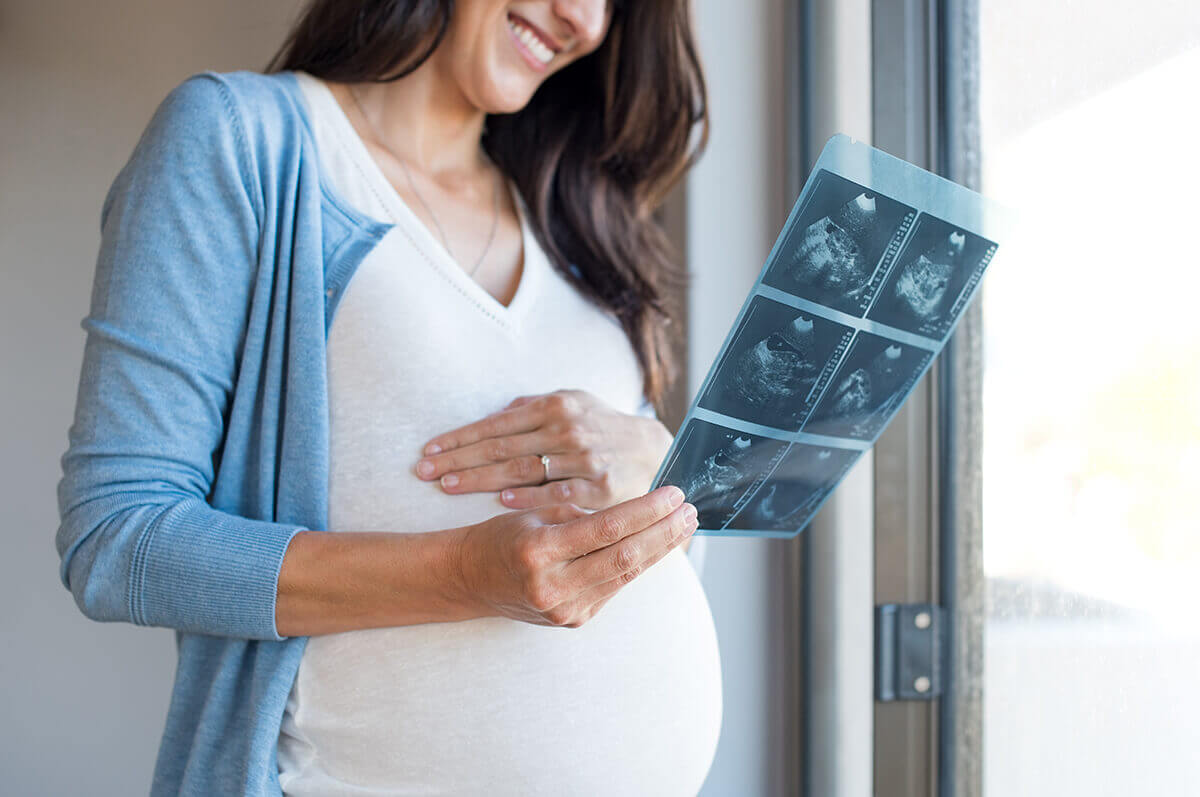Hypothyroidism & Pregnancy: Testing, Treatment, and Causes
Pregnancy does not cause hypothyroidism, but it can reveal or exacerbate pre-existing thyroid issues. Early on in a pregnancy, the developing baby relies on the mother for nourishment and other elements that include hormones. These hormones include the thyroid gland that is important for regulating the endocrine system.
Pregnancy often lowers the amount of thyroid hormone of the mother as the growing baby needs these hormones. Pregnancy can be impacted by both low or high thyroid hormones resulting in hypothyroidism, or low, or hyperthyroidism or high thyroid levels.
Hypothyroidism can be dangerous for women who are pregnant. Genesis Chiropractic understands the often missed early symptoms of these conditions, and combines various aspects of functional medicine to reduce overall stress.
Is Pregnancy Considered a Risk Factor for Development of Hypothyroidism?
While much of this is unknown, medical studies have linked pregnancy with hypothyroidism. The thyroid gland sits towards the front of the neck and is responsible for the excretion of the hormones needed to turn the nutrients humans eat into energy that fuels the body.
The two main hormones the thyroid gland regulates are triiodothyronine (T3) and thyroxine (T4). When the body fails to produce enough of these T-3 and T-4 this is known as an underactive thyroid gland commonly referred to as hypothyroidism.
Thyroid underproduction happens far more than most people think. Women are 8 times more likely to develop this disorder than men. When this occurs during pregnancy, the woman is said to have maternal hypothyroidism.
The baby will begin making its own thyroid hormones after the first trimester. So, some cases of maternal hypothyroidism may resolve on their own.
Overview of Tests & Screening to Spot Low Thyroid Problems During Pregnancy
Women who are pregnant should undergo basic thyroid screening to check whether there is a thyroid issue. How this is handled and treated depends on each unique woman’s pregnancy and other risk factors. There should be thyroid screening and tests for pregnant women especially if they have certain risk factors for the development of a thyroid disorder.
These risk factors include:
- Iodine Deficiency
- Over 30 Years of Age
- Family History of Thyroid Issues and/or Autoimmune Diseases
- History of Radiation to Neck Area
- Personal or Family History of Thyroid Cancer
- Past Problems Getting Pregnant or Staying Pregnant Until Full-Term
- History of Past Miscarriages or Preterm Births
- History of Thyroid Surgery
- Currently Taking Thyroid Medications
All the above risk factors should be conveyed to your medical treatment team.
Determine When the Onset of Thyroid Level Imbalance Began
There are some relatively complex types of thyroid disorders that cause a thyroid hormone level imbalance. It is important to determine if the onset of your pregnant hypothyroidism status began before pregnancy or whether this developed after the pregnancy.
Getting Thyroid Function Tests Are Key
While almost every doctor who orders blood tests usually includes a TSH level, the results of this test can be less accurate in some. To rule out a thyroid problem that could be brewing, the patient should be tested for T-3 and T-4 hormone levels in addition to a TSH level.
Many functional doctors have some additional tests that include:
- TSH Levels
- Free T-3 & Free T-4 Levels
- Total T-3 Level & Total T-4 Levels
- Reverse T-3
- Test for Hashimoto’s Thyroid Antibodies – Anti-Thyroglobulin & Anti-TPO Antibodies
- Thyroid-binding globulin – termed TBG Levels
A general rule of thumb for pregnant women is that doctors will typically screen for hypothyroidism at about the 9th week of pregnancy. Women who are at greater risk usually get tested again every 4 to 6 weeks during the second trimester.
How to Watch for Signs & Symptoms of Hypothyroidism During Pregnancy
Catching hypothyroidism earlier in the pregnancy gives the best chances of effective treatments and a healthy baby.
Signs and symptoms of hypothyroidism in pregnancy include:
- Weight Gain – This is often missed due to pregnancy weight
- High Cholesterol Levels
- Exhaustion & Daytime Fatigue Despite Rest – May also be signs of pregnancy and missed
- Constipation
- A Slower Heart Rate
- Skin Breakouts & Irritations
- Thinning of Hair & Eyebrows/Eyelashes
- Blue & Cold Hands & Feet
- Dry, Cracked & Brittle Nails
- Overall Aches & Joint Pain
- Loss of Mental Focus
- Problems with Memory
- Muscle Aches, Weakness & Stiffness
- Hoarse Voice & Throat Soreness
- Snoring When Asleep
- An Enlarged Thyroid Gland – termed Goiter
- The Dangers of Leaving Hypothyroidism During Pregnancy Untreated
Hypothyroidism during pregnancy can negatively impact both the mother and the vulnerable baby growing in her womb. There are some non-surgical and natural treatments to try that do not include drugs in most cases.
Some women will need to take medication if their doctor recommends this. The worst-case scenarios of untreated hypothyroidism during pregnancy include miscarriage, preterm births, and coma for the mother. In extremely rare cases, the mother and/or baby could die.
Understanding Links Between Hypothyroidism and Miscarriages or Other Pregnancy Complications
Before Pregnancy
Women may note increased bleeding during their usual menstrual cycle with or without abdominal cramping or other symptoms. The increased levels of thyroid antibodies may negatively impact a woman’s fertility.
About 3/4 of infertility cases result from low thyroid hormones. If treated, the woman is often able to become pregnant.
During a Pregnancy
Untreated hypothyroidism during pregnancy presents challenges to both mom and baby. These include:
- Preeclampsia
- Low Birth Weight
- Miscarriage
- Anemia
- A Preterm Birth
- Stillbirth
- After Pregnancy
A woman should be monitored after their baby is born. A significant portion of women will develop a thyroid problem within a year or thereabouts.
Mothers who breastfeed should discuss treatment should symptoms arise with their doctor. Sometimes, adding more iodine into the diet can be an effective remedy.
Special Risks & Concerns for Newborn
Newborn babies have increased risks for adverse complications when the mother had unknown or untreated hypothyroidism during pregnancy.
These risks to newborns include:
- Problems with Motor Skills
- Developmental Delays in General
- Cyclic Vomiting Syndrome
- Attention Disorders – ADD or ADHD
- Poor Hippocampal Development
- Problems Interpreting What a Baby Sees
- Learning Disorders
- Practical Guide for Maternal Hypothyroidism Treatment
Pregnant women who are diagnosed with hypothyroidism often are treated with the following measures that include:
- Make Dietary Changes
- Take Prenatal Vitamins
- Adjustment of Thyroid Medications if Taking Any
- Close Monitoring After Childbirth to Ensure Hypothyroidism Stays Gone or Is Managed
There are effective methods to diagnose and treat hypothyroidism symptoms in pregnant women. Getting regular medical exams and communicating symptoms with your doctor can help ensure a healthy pregnancy and a healthy baby.
Dr. Tiffani Fries, DC is passionate about functional medicine and certified in the Webster method for prenatal chiropractic care. Contact Genesis Chiropractic to learn more about hypothyroidism & pregnancy or book your appointment with Dr. Tiffani Fries, DC today.
Dr. Tiffani Fries, DC
Dr. Fries, DC opened Genesis Chiropractic in 2002. The name of the office signifies “the beginning” of the journey to better health. She wanted to have an office that listens to people about their health concerns, and an office where patients could get individual, personalized care. With over 20 years of practice, Dr. Fries has seen how stress, diet, lifestyle, and injury can affect the human body and turn into chronic pain and illness. She focuses daily on helping patients get to the root of their problem and live healthier lives.

